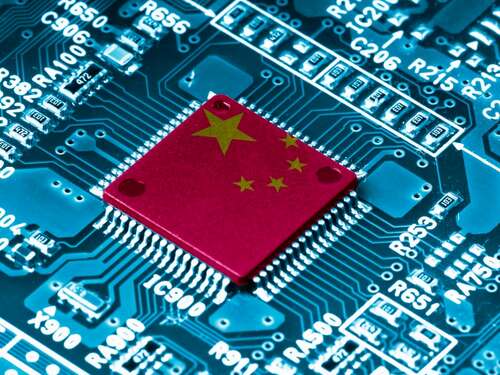
The new restrictions impact more chips from companies such as Nvidia and aim to prevent export rules from being evaded.
The US is continuing its trade war with China and has issued a fresh batch of restrictions on the export of AI chips.
The new restrictions are a follow-up to the restrictions on advanced chip exports that were introduced last year to China and multiple other countries. The US said these restrictions aimed to prevent advanced hardware from being deployed for military use in certain countries, such as Russia and China.
US secretary of commerce Gina M Raimondo said the updated rules are attempting to prevent loopholes that can be used to “evade our restrictions”.
“These controls maintain our clear focus on military applications and confront the threats to our national security posed by the PRC [People’s Republic of China] government’s military-civil fusion strategy,” Raimondo said.
Nvidia shared details of the new restrictions in a filing with the US Securities and Exchange Commission (SEC). The company claims they will face additional licensing requirements to export products that exceed “certain performance thresholds”.
The company said that the new restrictions apply to its A100, A800, H100, H800, L40, L40S and RTX 4090 chips. The rules also affect the export of systems that incorporate these chips, such as the Nvidia DGX and HGX systems.
Nvidia designed the H800 chip as a way to get past the earlier trade restrictions that impacted its ability to sell the H100 to China, according to a Reuters report in March.
“The licensing requirement may impact the Company’s ability to complete development of products in a timely manner, support existing customers of covered products or supply customers of covered products outside the impacted regions, and may require the Company to transition certain operations out of one or more of the identified countries,” Nvidia said in the SEC filing.
Raimondo said the US government will work to protect national security while “minimising any unintended impact on trade flows”. She also told reporters that the rules will only impact a small fraction of chip exports to China, CNBC reports.
The restrictions are expected to impact exports from other chipmakers and the stock price of companies such as Broadcom and Intel dropped following the announcement of these new rules, according to CNBC.
Other countries joined the US in reducing AI chip exports to China earlier this year. In June, the Netherlands joined this trade-war and imposed export controls to restrict technologies from Veldhoven-based ASML.
In July, China hit back against the sanctions when it announced export restrictions on gallium and germanium, two metals that are considered vital to the semiconductor sector.
10 things you need to know direct to your inbox every weekday. Sign up for the Daily Brief, Silicon Republic’s digest of essential sci-tech news.

